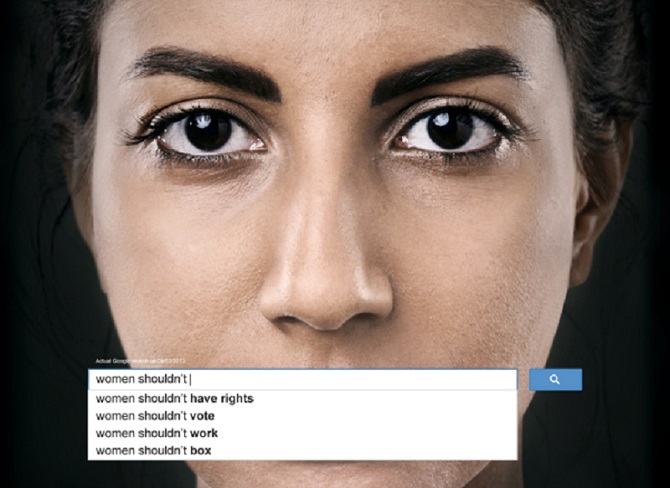[dropcap style=”2″ color=”#f50a0a” text=”A”]powerful campaign idea from UN Women using real suggested search terms from Google’s autocomplete feature. Campaign creator Christopher Hunt, head of art for Ogilvy & Mather Dubai. The ads show the real Google search results of search terms like “women need to”, “women should” and “women cannot”, revealing the abhorrent opinions that people around the world have about women.
[blockquote style=”quote” align=”” author=”Christopher Hunt, head of art for Ogilvy & Mather Dubai”]This campaign uses the world’s most popular search engine (Google) to show how gender inequality is a worldwide problem. The adverts show the results of genuine searches, highlighting popular opinions across the world wide web.[/blockquote]
The words “women shouldn’t suffer from discrimination anymore” and “women cannot accept the way things are” appear in tiny, white print that are barely legible, showing how these opinions are largely ignored.
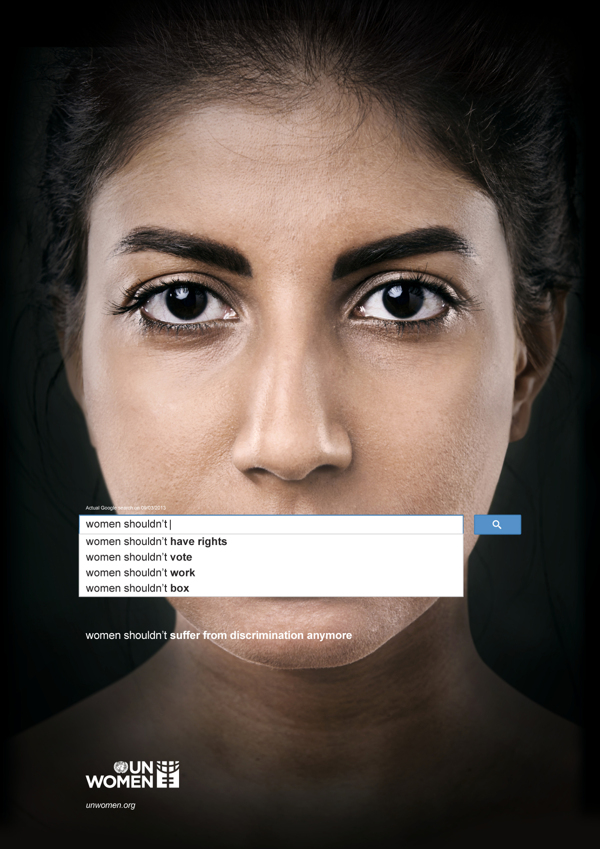
- Advertisement -
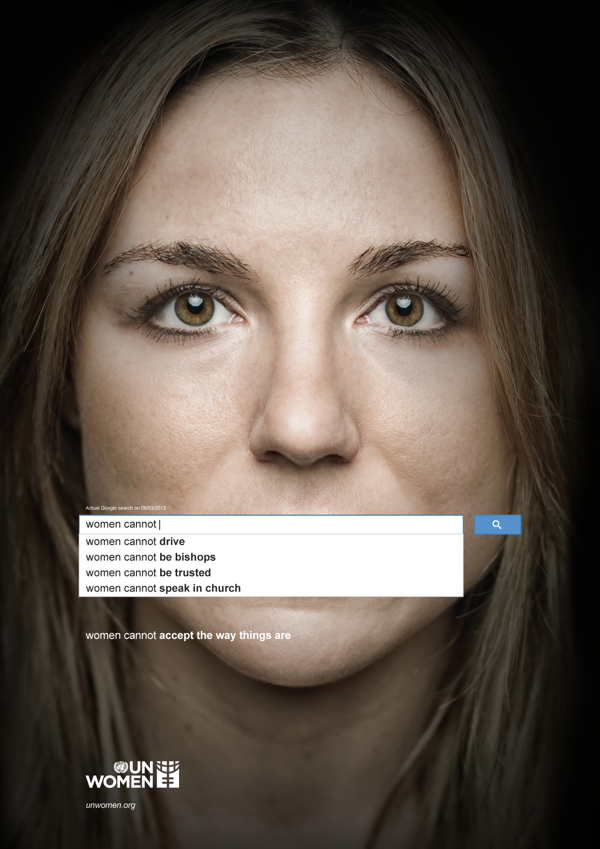
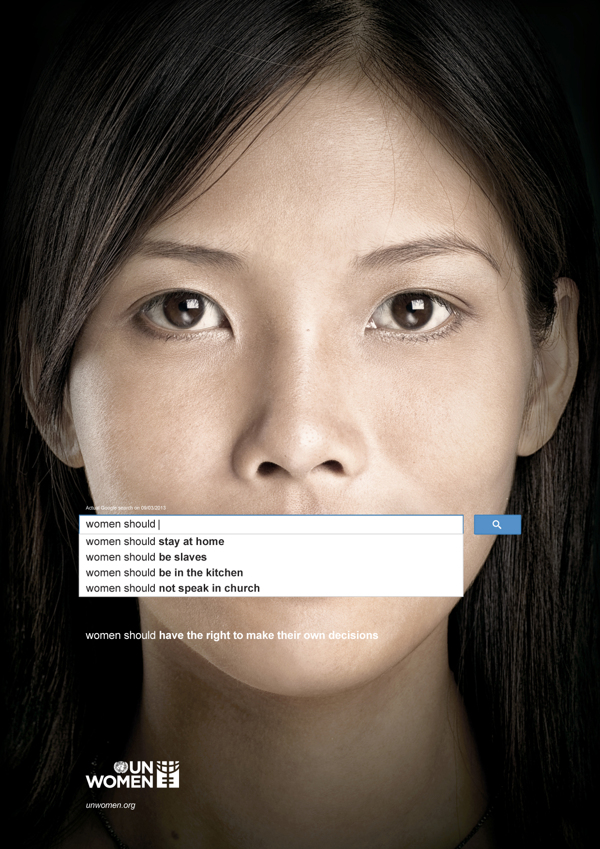
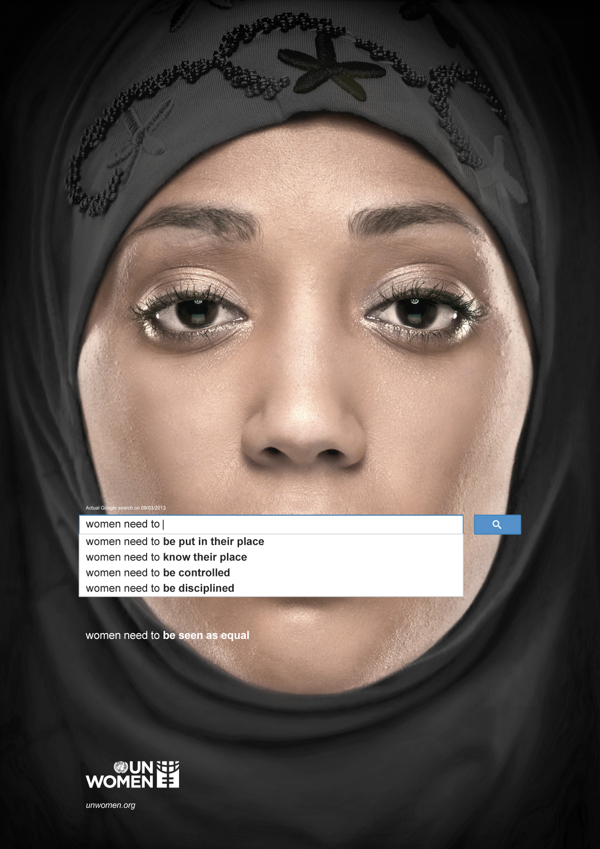
Each ad’s fine print says “actual Google search on 09/03/13.
